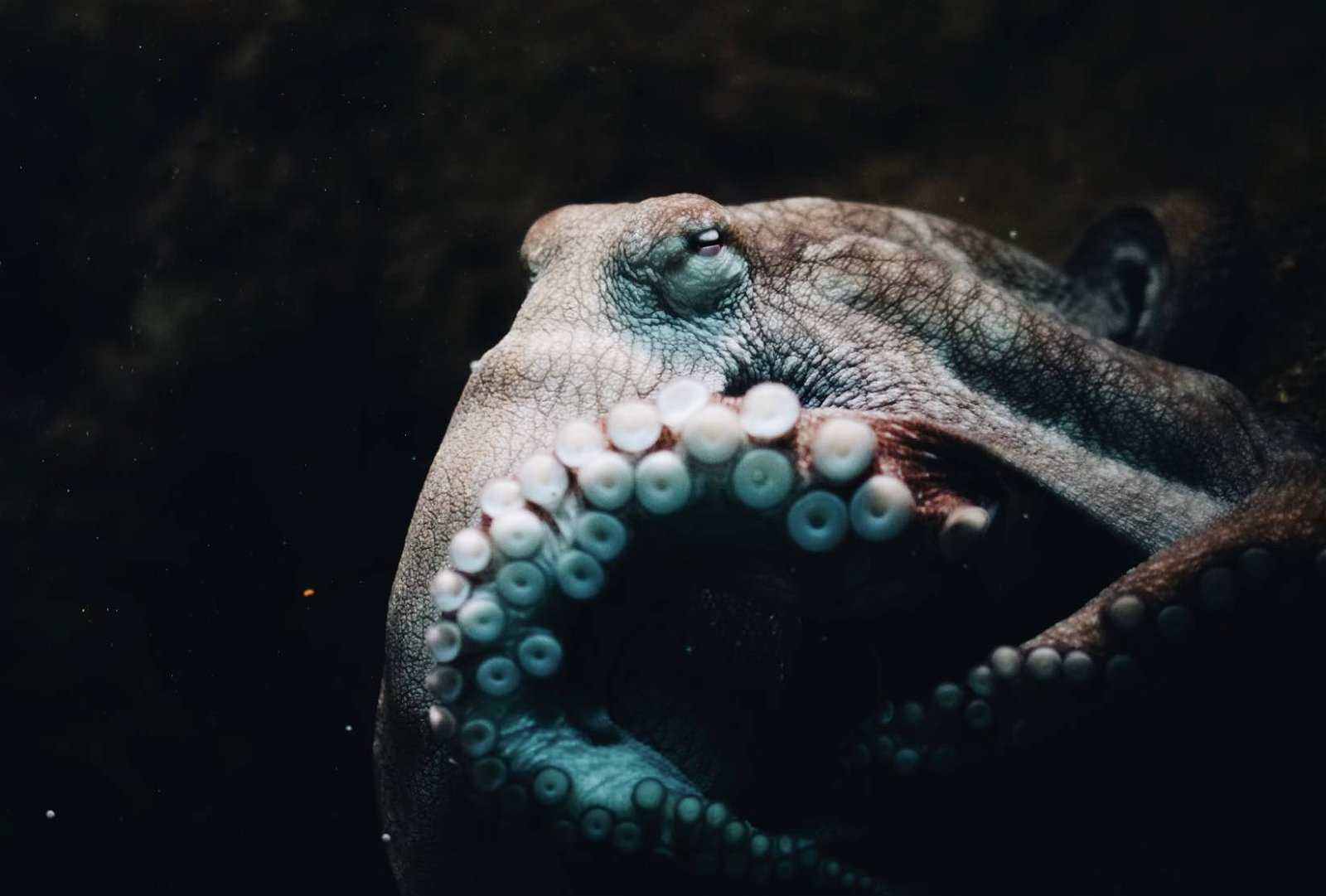With their otherworldly color changes and renowned intelligence, octopuses have captured the attention of the public and scientific community for decades. Recent books and films like My Octopus Teacher showcased just how curious octopuses can be and their ability to learn and adapt to new stimuli.
In a recent Biology study, researchers from several different Italian institutes took octopus learning one step further by testing 54 Octopus vulgaris individuals of various ages with a puzzle box, trying to understand how these creatures tackle problem-solving. The clear puzzle box could be opened with pulling, screwing, or sliding motions, giving each octopus a range of solutions to the problem.
From their results, the researchers discovered that the octopuses have individualized differences when solving a task instead of mimicking behaviors from each other.
These results suggest that the animals are more individualized than expected, which could help influence the possible research protections given to these animals and other cephalopods that the U.S. National Institute of Health (NIH) is considering.
Currently, there are few to no research protections for “invertebrates” like cephalopods, though many cephalopod research facilities have created their own internal regulations for humane treatment.
Diving into Individualized Learning
To better understand how octopuses learn, the researchers had the 54 test subjects (32 male and 22 female octopuses) watch a “trained” octopus open the transparent puzzle box with a live crab, the food incentive, inside. Though each octopus watched the trained octopus open the box, the researchers found that the test subject octopuses behaved differently than their trained counterparts.


The researchers observed that the octopuses that were more curious about new objects were quicker to approach the puzzle box and had a higher probability of opening it.
However, this process didn’t mean they solved the puzzle box faster than the less curious octopuses. Based on their findings, the researchers implied a possible trade-off between problem-solving efficiency and curiosity within the minds of these cephalopods.
An Argument for Age-Based Experience
Like many other animal species, octopuses have been shown to learn from their experiences, such as predation, to adapt and survive to an older age.
Experts like Dr. Christine Huffard, a researcher at the Monterey Bay Aquarium Research Institute (MBARI), who was not involved in the Biology study, believe that the “experience” or age factor wasn’t considered within this study.
“Age is linked to brain size within these animals,” Huffard explains. “While the older and larger octopuses have a bigger and more developed brain, this could mean they have more experience and are less curious about the puzzle in front of them. In contrast, the younger octopuses, who move faster and possibly learn faster, may have an easier time solving this challenge.”
Huffard suggested that a future direction for this study would be to consider using age ranges to separate test subjects and compare the learning abilities of similar-aged individuals to understand better how the experience may affect the individualized learning process.
Octopuses: A Challenge of Measuring Intelligence
While the study suggested that octopuses use an individualized approach to problem-solving, it’s difficult for octopus researchers to investigate their learning processes fully and, in turn, measure their intelligence levels. This is especially the case for studying octopuses in their native habitats.
“There is a lot of anecdotal evidence for the adaptability of octopuses to changing situations, their innate curiosity (which is an essential tool for scientists who study octopus behavior), and the individual differences in the way they respond to challenges (which often means a large variability between individuals when experimenting),” elaborates Dr. Tamar Gutnik, a former postdoctoral researcher at the Okinawa Institute of Science and Technology, who was not affiliated with this study.
“We know a lot about the learning abilities of octopuses, which are quite extensive, but learning does not necessarily mean intelligence. With no real definition of intelligence in animals, it is hard to determine to what extent it applies to octopuses,” Gutnik said.
As Huffard, Gutnik, and other octopus researchers continue to explore the inner workings of these cephalopods’ minds, perhaps a clearer definition of “intelligence” for octopuses will come to light, allowing us to understand better how these creatures adapt and survive.
Kenna Hughes-Castleberry is a writer and the Science Communicator at JILA (a partnership between the University of Colorado Boulder and NIST). She is also the co-host of The Debrief Weekly Report podcast. You can find more of her work at her website: https://kennacastleberry.com.

